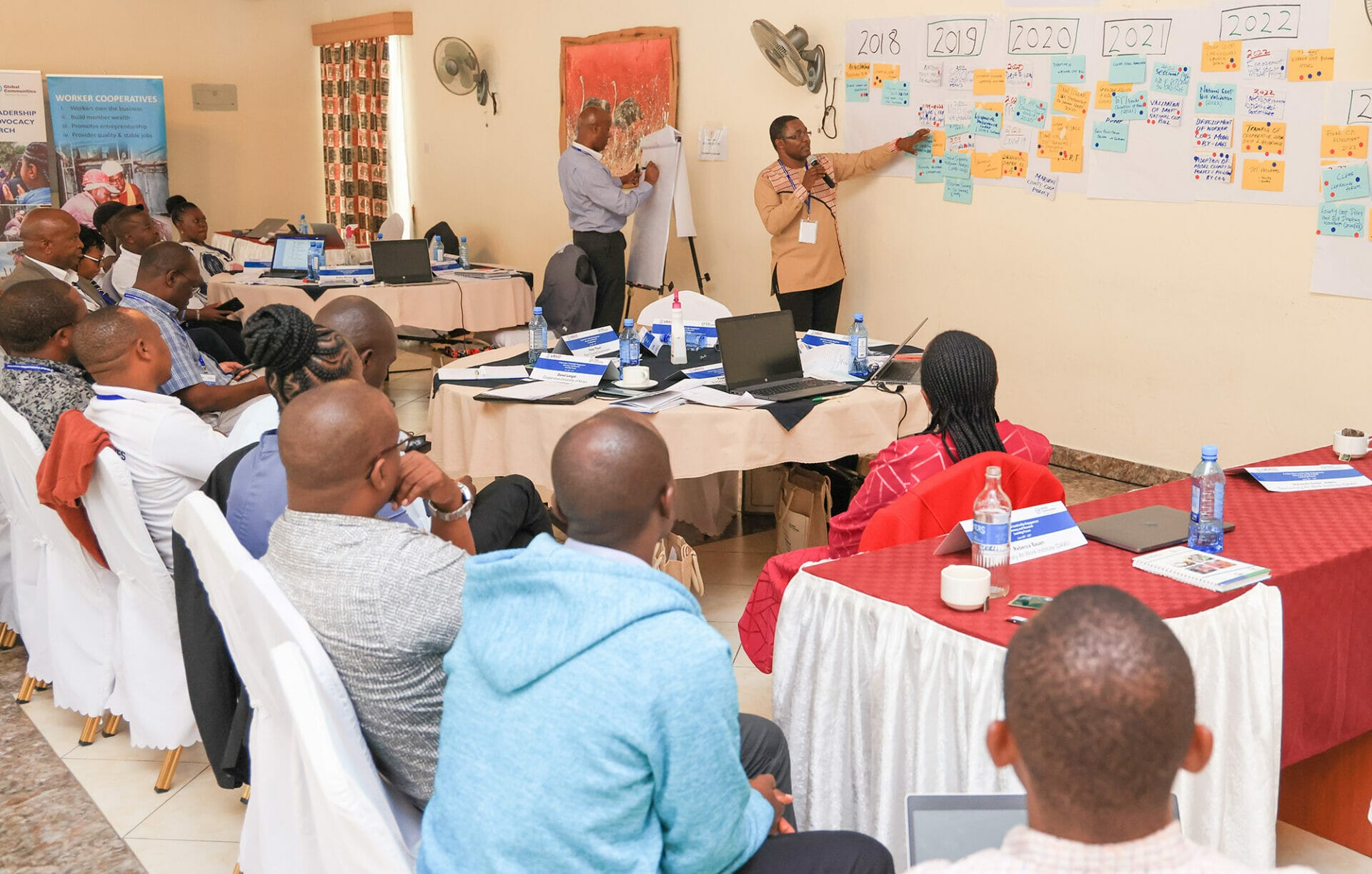News > Blog
Collaborating for Impact in Kenya’s Cooperative Sector
Published 09/06/2023 by Global Communities

By Tindi Sitati
Collaborative partnerships are the driving force behind the Cooperative Leadership, Engagement, Advocacy and Research (CLEAR) program at Global Communities. These partnerships enhance cooperative sector growth and advance economic prosperity by enabling cooperatives to pool resources, share knowledge, access broader markets and achieve economies of scale. Through collaboration, cooperatives can mitigate risks, foster innovation and enhance their competitiveness.
The CLEAR program, which is funded by the United States Agency for International Development (USAID), recently hosted a learning forum that brought together program partners to reflect on milestones and adaptations, validating lessons stemming from their collective endeavors. Participants included the Council of Governors, State Department of Cooperatives and Cooperative Alliance of Kenya, among others.
The event aimed to review program achievements, validate lessons learned, assess data contributing to success, and offer recommendations for the Kenyan cooperatives sector. With CLEAR ending in December 2023, this event was part of planned learning initiatives to share insights and adaptations from the program. The objectives included reflecting on milestones, documenting lessons, identifying successful approaches and generating recommendations for program evaluation and sector support.

The learning forum led to the identification of effective strategies and constructive dialogues aimed at further elevating Kenya’s cooperative sector. During the forum, participants envisioned a strong cooperative sector positively influencing development sectors like health care and education. Critical weaknesses identified were weak governance, inadequate legal and policy frameworks, and insufficient skills in cooperative management. Recommendations included developing an action plan for critical recommendations and streamlining the cooperative registration process. Additionally, participants highlighted the need for a scale-up strategy and sustainability efforts for worker cooperatives.
CLEAR’s collaborations extend notably to learning institutions, exemplified by its partnership with Strathmore University, which culminated in the launch of an executive program on Public Policy Making Process (PPMP). This initiative has benefited county cooperative officials and stakeholders alike by improving their understanding and skills in cooperatives policy. Furthermore, in collaboration with the Cooperative University of Kenya and Democracy at Work Institute, CLEAR launched the Worker Cooperative Business curriculum that has enriched educators’ and students’ understanding of worker cooperative management.
In tandem, partnerships with county and national governments, the State Department of Cooperatives and the Council of Governors has yielded a comprehensive framework for county cooperative policies and regulations. Through this collaborative effort, 21 counties have partnered with Global Communities through legislative drafting workshops and have successfully revised their bills in accordance with the updated constitution.
During the learning forum, CLEAR documented participants’ reflections and the program’s achievements in this short video. To delve deeper into the impact of these partnerships, Acting Chief of Party Ashley Holst shares how CLEAR’s collaborative efforts have magnified the influence of cooperative development work in Kenya.






